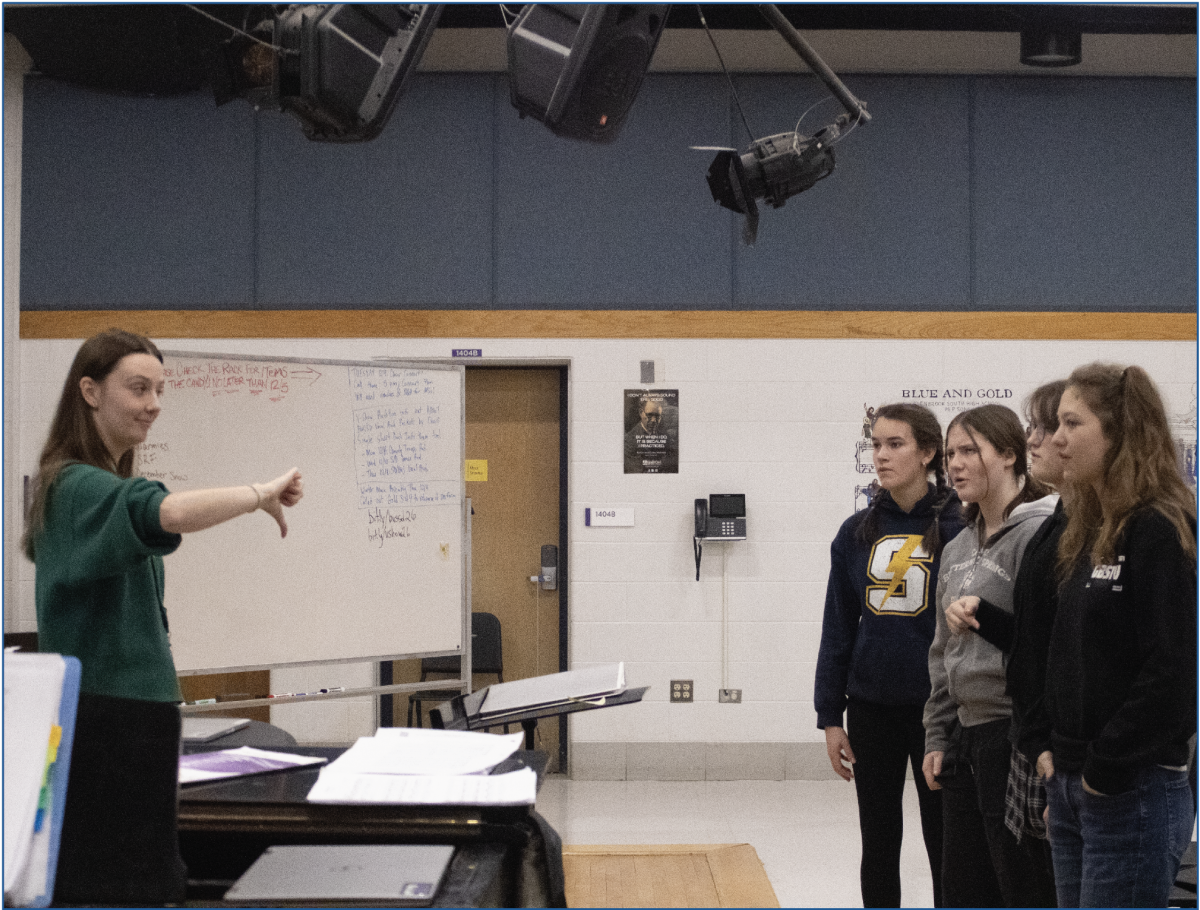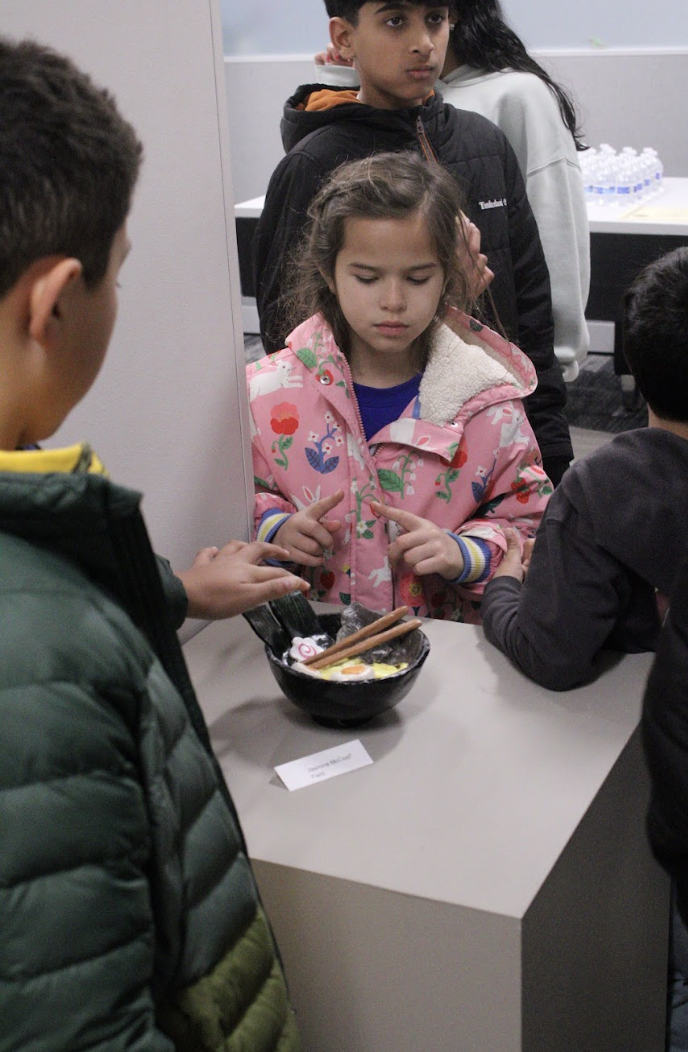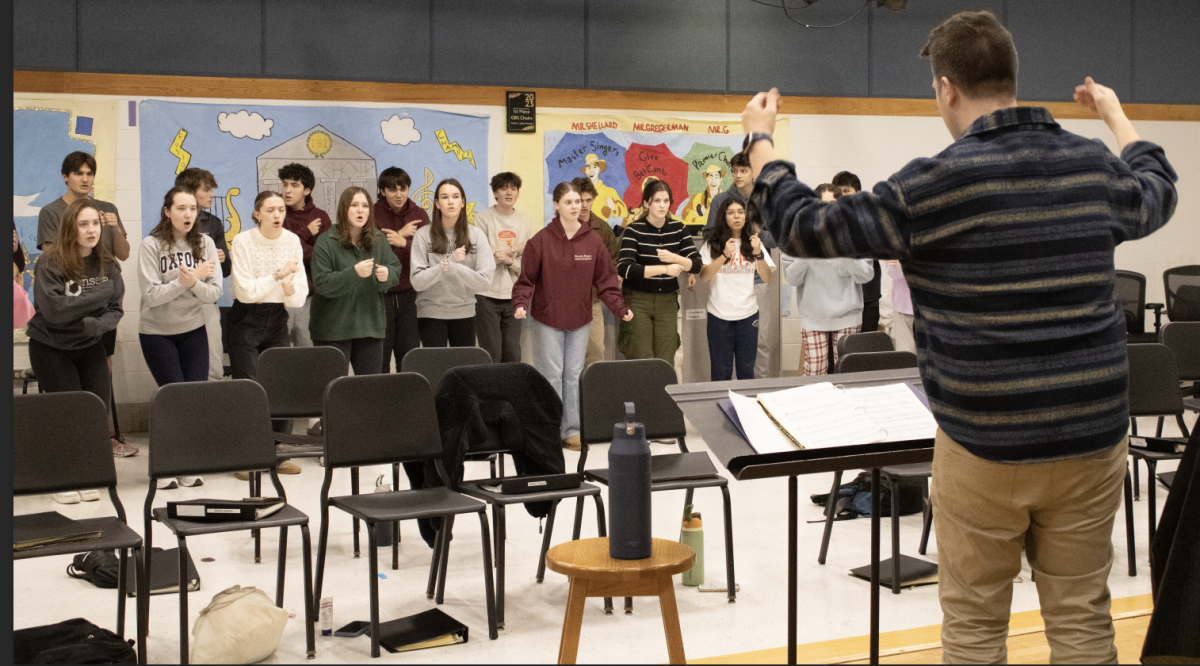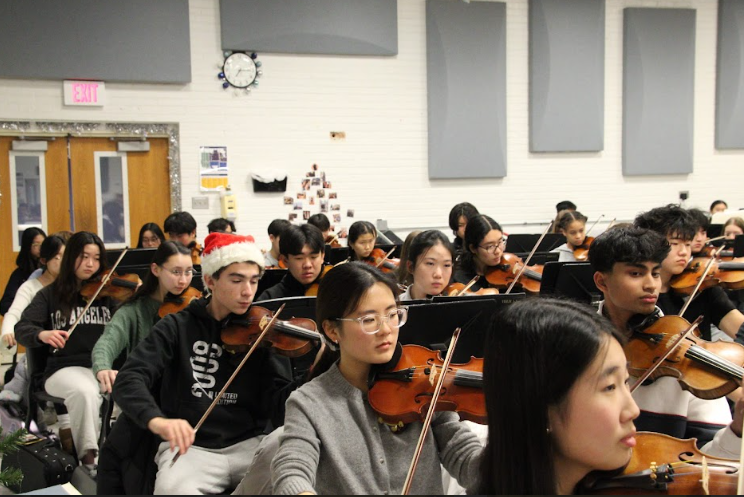South’s vocal group Scat That! has formed an identity through their exploration of jazz that separates them from all other choral groups at South.
Choir Director Stevi Marks describes Scat That! as a group that requires tedious vocal work.
“We are a vocal jazz ensemble,” Marks said. “The music we sing has intense harmonies that are written to be purposely difficult. The difference with vocal jazz is the way the harmonies are structured for the voices. Also, the rhythms tend to be extremely syncopated. We spend a lot of time making sure those rhythms are correct.”
According to Lindsay Lyhus, senior Scat That! member, the group pieces together syllables to formulate musical phrases, a process called scatting. Lyhus describes how this style of vocalization is incomparable to any other that even experienced musicians are familiar with.
“That’s what makes it fun,” Lyhus said. “The music is so challenging because it’s hard to relate it to anything else and build off of it. So, we’re learning how to sing again with jazz.”
So far this year, Scat That! has performed at the 50th anniversary all-school assembly, fall concert, 24-hour telethon, and an event for the Mortgage Bankers Association. According to the ensemble, the invitation to sing at the Mortgage Bankers event was definitely the highlight. The group has been busy, especially more this year than others, so they’ve had to perform a lot of pieces together with little practice.
“We ended up getting a really hard arrangement for us to do for the fall concert called ‘Nature Boy’,” Marks said. “If we had all of the time from fall to practice it, it would [have] been easier for us. We had to learn a bunch of music really fast that we hadn’t intended on learning. So, we basically ended up really having to switch that music in.”
The pieces that Scat That! works with are especially difficult, according to Marks, because they include a lot of scatting and improvisation. Marks believes that is what separates them from other music groups at South.
“We do a lot of things that aren’t on the page,” Marks said. “We do scatting and also do improvisation on the melody. There [are] open solos when people step forward. They are making it up, sort of wailing on top of the chord progression.”
The group members describe scatting as so difficult that some would rather completely improvise, rather than keep up with complicated scat sections.
“The [scat] rhythms are hard, and remembering what syllables go where is hard,” Lyhus said. “There’s not a word order you can remember, it’s just random syllables but you still have to remember what order they are in. The sections are also very fast, so it’s very difficult. I can go at my own pace for improvisation. It leaves it up to your comfort level.”
Marks takes into consideration that scatting is very difficult, and understands the risk that her students take as they explore a vocal style that is hard to expect.
“Everybody in that group can scat,” Marks said. “Some are a little more timid, or it doesn’t come as naturally, but they can all scat. As a person who has been forced to scat, it’s a very scary feeling. […] It’s live. It’s in the moment. There are ideas you can rehearse when you do a scat, but basically it comes out differently every time.”
Despite the challenging aspect of scat, Marks believes that all students need is a slight push to go into this unfamiliar vocal world.
“It’s so difficult,” Marks said. “But, I’d say, anybody, with a little coaching can do it. […] Once you [scat], it’s much easier the second time. It’s all about giving yourself the permission to do it.”
Scat That! is in the process of finding their voice as a group. It’s very difficult to do this, according to junior Katherine Loiselle, because their pieces are multi-dimensional.
“We would all be on different pitches sometimes for different voice parts,” Loiselle said. “When we’re doing this very quickly, it’s really hard to make the chorus lock.”
Lyhus views the group members’ voice variation as an advantage.
“This year we’ve got a lot of different types of voices, which is cool because our sound is fuller,” Lyhus said. “We don’t all sound exactly the same. We’ve got some people who sing more pop music and others who sing more classically.”
The choir agrees that over the course of the year their main goal is to unite as one solid sound.
“We still need to find our group sound,” junior Hannah Pellouchoud said. “We need to work on blending and becoming more of one voice.”
The group is currently working to prepare for their upcoming winter concert, where they will sing “Stand Up and Make a Change”. Their potentially most important performance of the year will take place at the Variety Show, where they will be trying out to sing a piece called “Golden Girls”.
Loiselle explained that the majority of the Scat That! members view the Music Department as their place at South because it is where they are most involved, so the Variety Show is very important to them. It’s the best opportunity for the student body to hear their sound.







